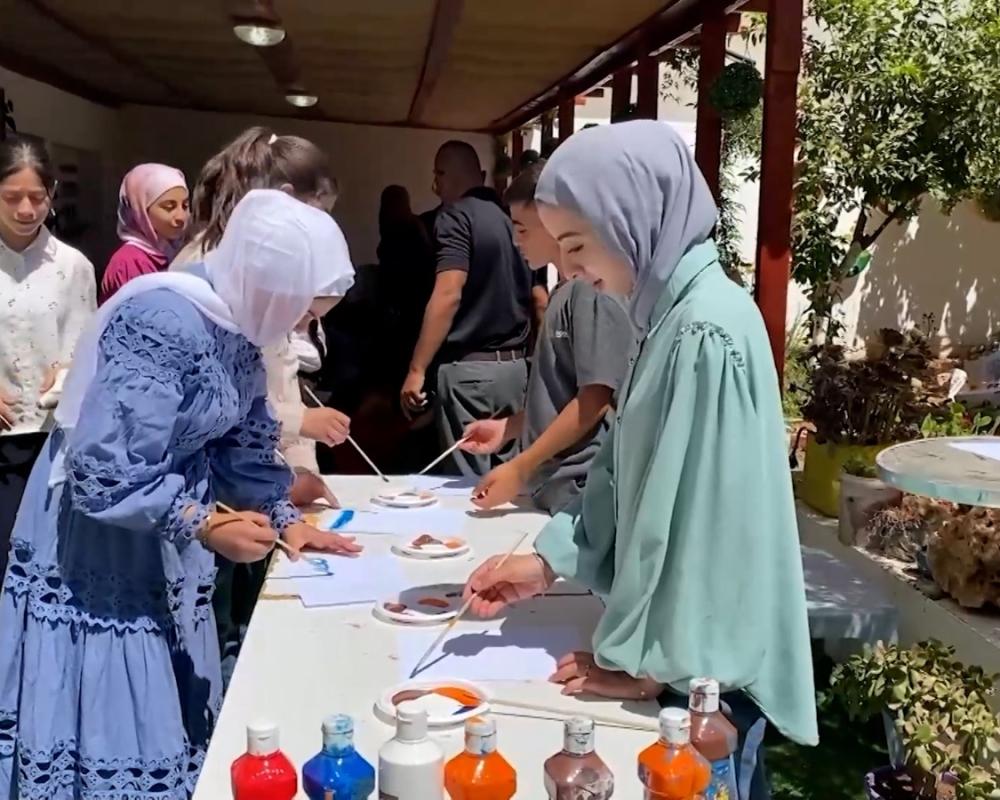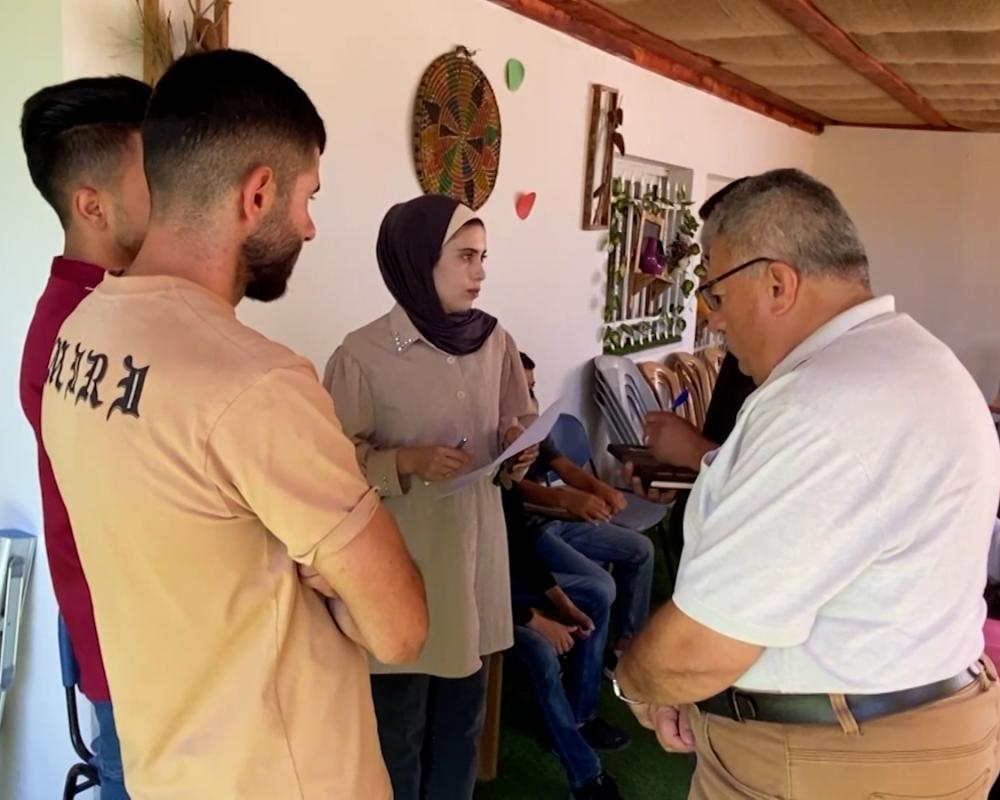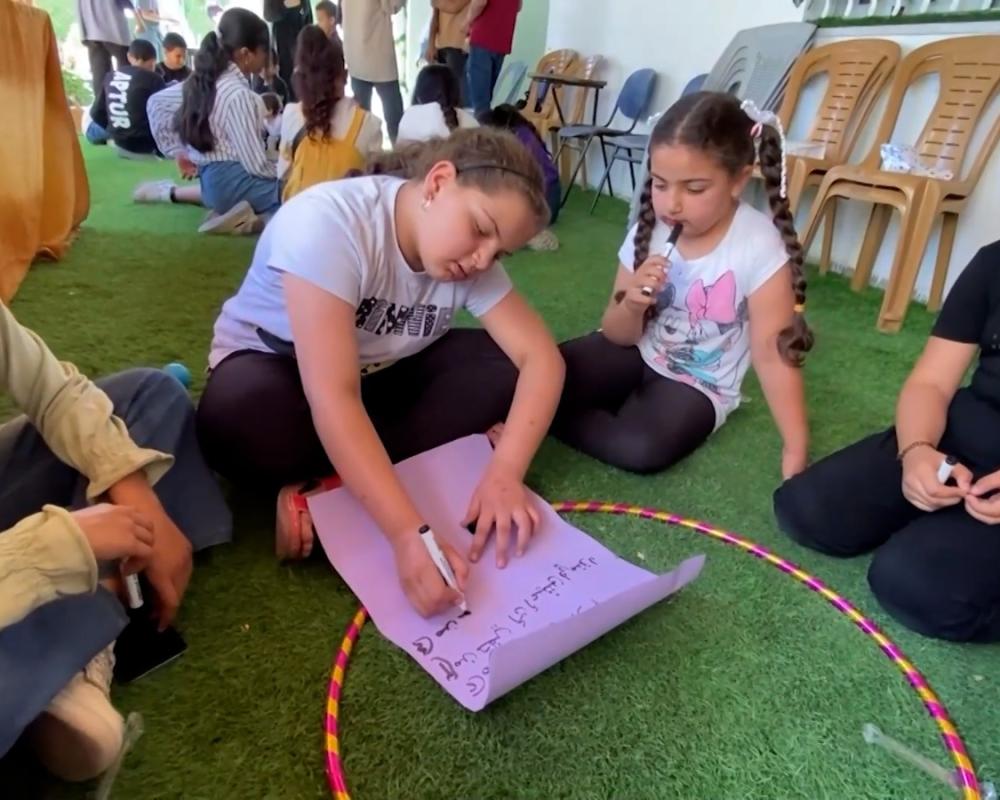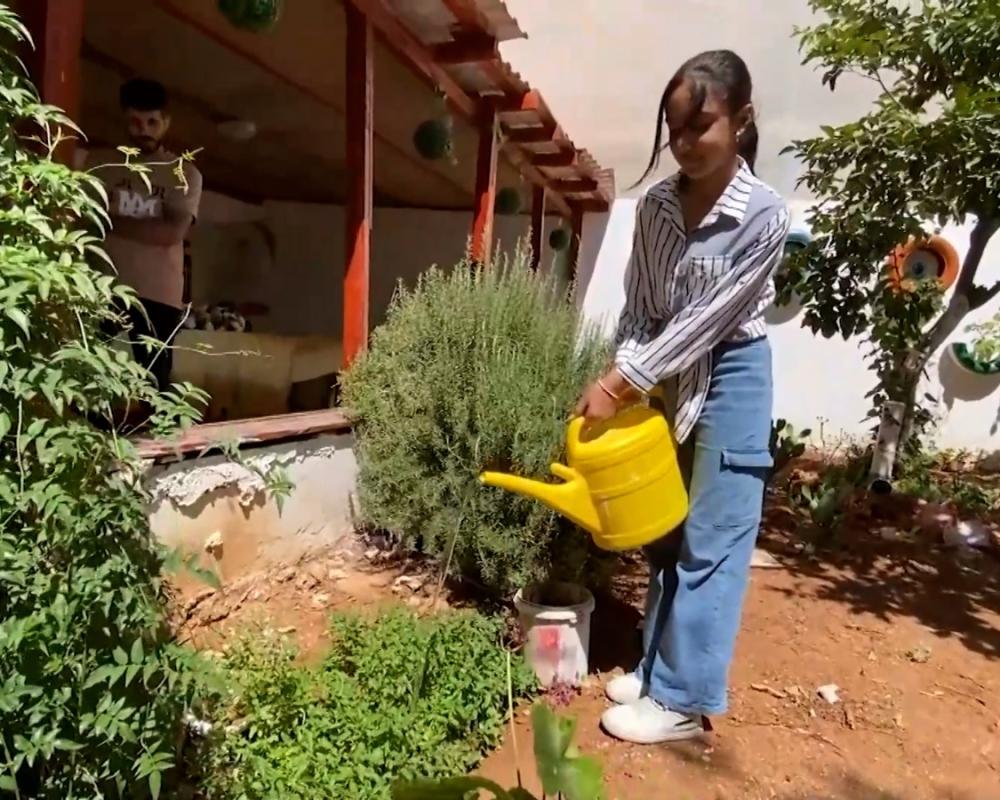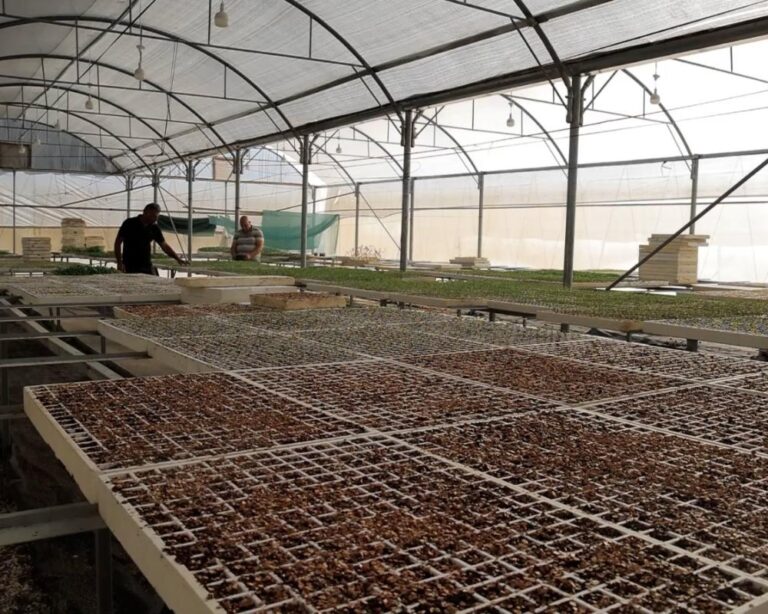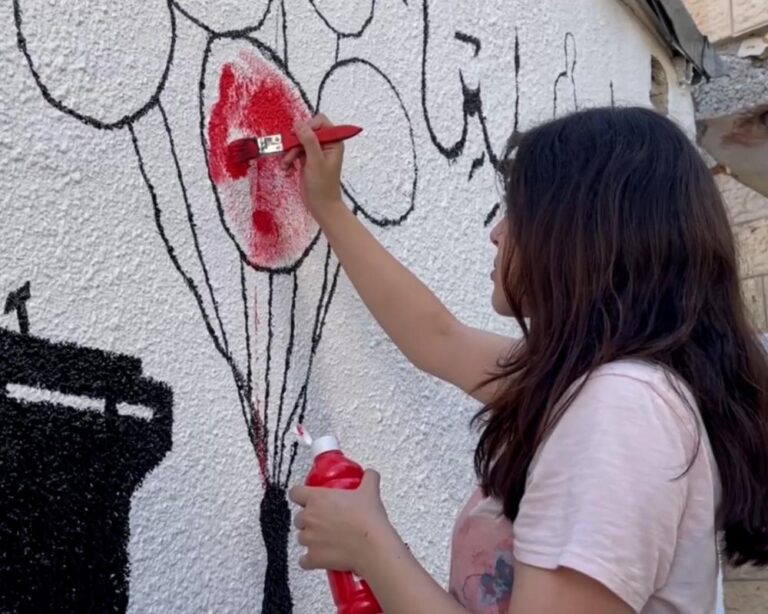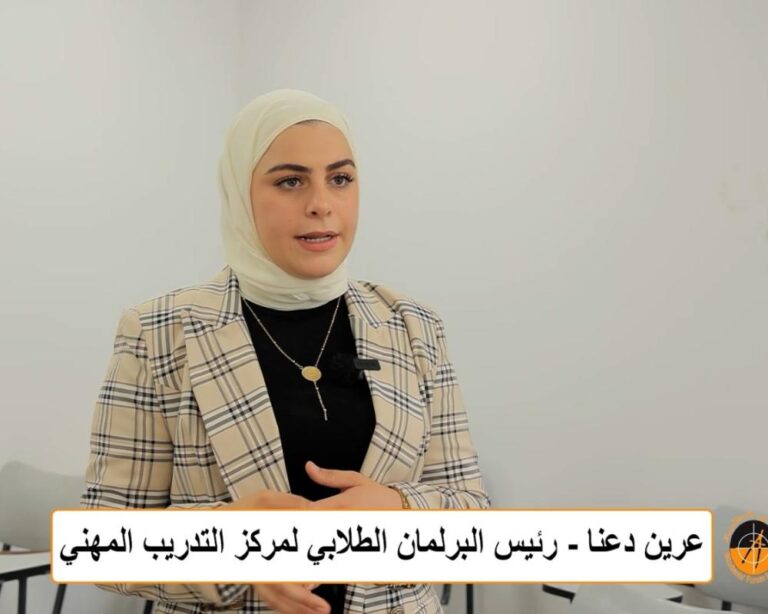In one of Hebron’s neighborhoods, there was an abandoned place — a barren dirt lot filled with silent stones and trash. People would pass by without giving it a second glance… until a group of young people decided to turn this empty space into life.
This is how the story of “Qataf” began.
Young people from different backgrounds and villages came together around a shared passion: the environment. They didn’t have many resources, but they had a strong belief that change is possible—even if it starts with a small stone. With a simple initiative and support from the Student Forum Institute, they decided to recycle the scattered stones in the lot and turn them into beautiful garden beds. That was the moment they set off.
Ameen Khallaf, one of the group’s founders, says:
“We wanted to break the stereotype and redefine our relationship with nature. We worked on transforming the space from an abandoned lot into a green area where we planted cacti — not just any cacti, but red ones, the color of life.”
The project wasn’t just about beautifying the space — it became a safe social hub, hosting workshops, discussion circles, and dreams that grow a little more each day.
Ghaleb Rajoub, one of the activists, smiles as he points to a newly added heritage corner in the space and says:
“We wanted to feel like we had a place of our own. Today, the space isn’t just filled with plants — it’s filled with people, with stories, with a sense of belonging.”
Activist Eman Abu Ruwaie sees “Qataf” as more than just an initiative — she sees it as an experience.
“We started noticing how people were engaging with us — they began asking how they could get involved, plant with us, or learn about gardening. The space started bringing together both young and old.”
As for Ameen Al-Wahwah, he considers the space a “second home,” saying they found in it a sense of safety they couldn’t find in many other places.
“When I’m here, I feel like I’m among family. We plant, we plan, we draw, we dream.”
Lamees Al-Darawi continues the story, telling us about visits to eco-museums, organizing nature trails, and the initiatives that have become part of their daily lives.
“We started seeing the world through different eyes… We began to think of the environment not as something external, but as part of our identity.”
“Qataf” is not just a group, but a living human experience — proof that change doesn’t require vast resources, but a believing heart, working hands, and a space that allows growth.
This story was produced as part of the “Youth in Decision-Making” project, implemented by the Student Forum Institute in partnership with Norwegian People's Aid.
